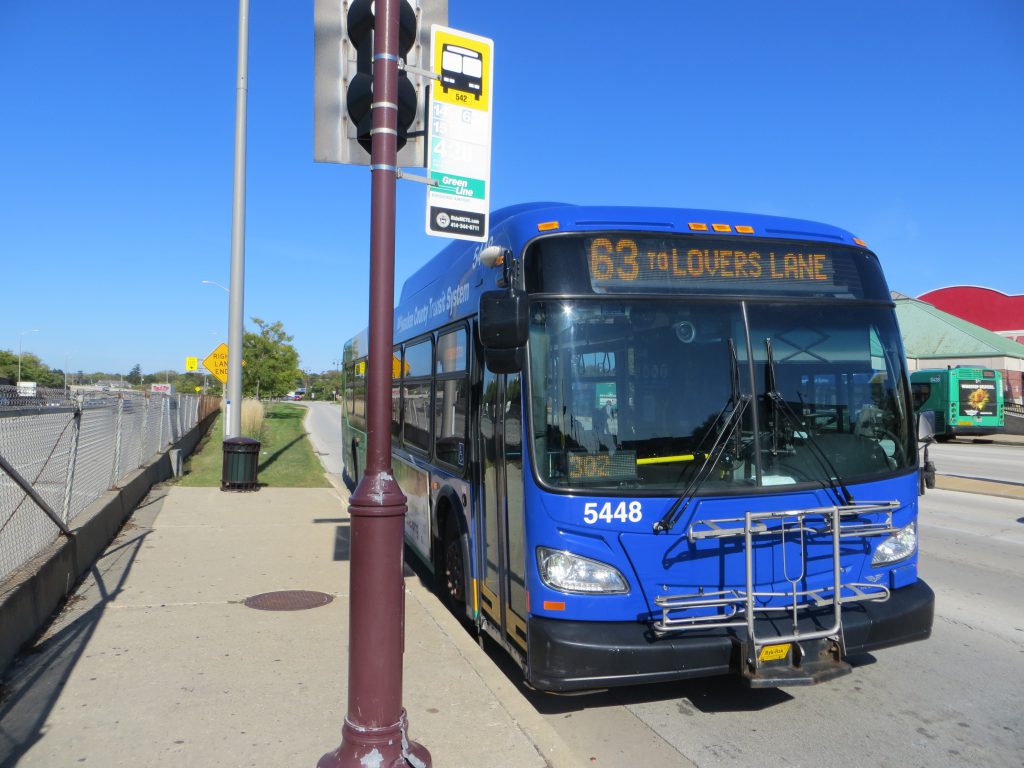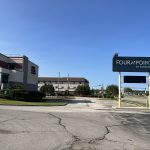Transit’s Role in Racial Justice
All the city news you can use.
Want more links to read? Visit The Overhead Wire and signup. Every day at The Overhead Wire we sort through over 1,500 news items about cities and share the best ones with our email list. At the end of the week, we take some of the most popular stories and share them with Urban Milwaukee readers. They are national (or international) links, sometimes entertaining and sometimes absurd, but hopefully useful.
How discussions of ‘Neighborhood Character’ reinforce structural racism: In St. Paul long after racial covenants have been deemed immoral and illegal, the language of ‘neighborhood character’, a shorthand for continued exclusion, still exists in the language of the city’s zoning code. This reinforcement of structural racism through the words and ideas behind ‘neighborhood character’ disempowers communities of color while empowering primarily white and affluent homeowners. (Gretchen Brown | Rewire)
Transit’s role in racial justice: The US has long failed to address equity and racism in transportation investments but we have an opportunity to make changes. In this piece Darnell Grisby, Director of Policy Development and Research at APTA argues there are three things we can do to start down that road; by addressing regional transit governance, focus on the larger policy environment outside transit, and reform CEO recruitment policies at transit agencies that keep qualified Black people from getting the job. (Darnell Grisby | CityLab)
Rich Americans emit more greenhouse gases: Wealthier Americans tend to have high emissions, but this is compounded when their larger homes are factored into calculations. Per capita, wealthier Americans tend to have 25% higher carbon footprints than their peers and this is likely to create problems as current emissions from buildings are often locked in during construction for thier full lifespan, despite electrification or new technologies. (Lloyd Alter | TreeHugger)
NOACA will measure equity before building interchanges: Cleveland’s MPO NOACA is creating a policy on interchanges which attempts to look beyond congestion and safety and consider the future environmental justice implications of highway construction. After recognizing that highways “reward some areas while penalizing others” the new policy would quantify whether the interchanges would exacerbate existing problems. (Steven Litt | Cleveland Plain Dealer)
Quote of the Week
We are not here to expropriate. What we want is for apartments to be rented, if the answer is no, we will open the file and they will go to expand the city’s public housing sector.
Barcelona city housing commissioner Lucia Martín in CityLab discussing the plan to purchase and rent vacant apartments to increase supply.
This week on the podcast, California Planning and Development Report’s Josh Stephens joins us for a two part episode on his new book The Urban Mystique.
Part 1
Part 2
Want more links to read? Visit The Overhead Wire and signup. (http://dtrnsfr.us/2iA8Yas)
If you think stories like this are important, become a member of Urban Milwaukee and help support real, independent journalism. Plus you get some cool added benefits.
Urban Reads
-
Congestion Pricing Cuts Air Pollution in New York City
 Dec 14th, 2025 by Jeff Wood
Dec 14th, 2025 by Jeff Wood
-
We Think We Love to Drive. But Do We Really?
 Dec 7th, 2025 by Jeff Wood
Dec 7th, 2025 by Jeff Wood
-
Can Scott Wiener Tackle America’s Housing Crisis?
 Nov 23rd, 2025 by Jeff Wood
Nov 23rd, 2025 by Jeff Wood




















